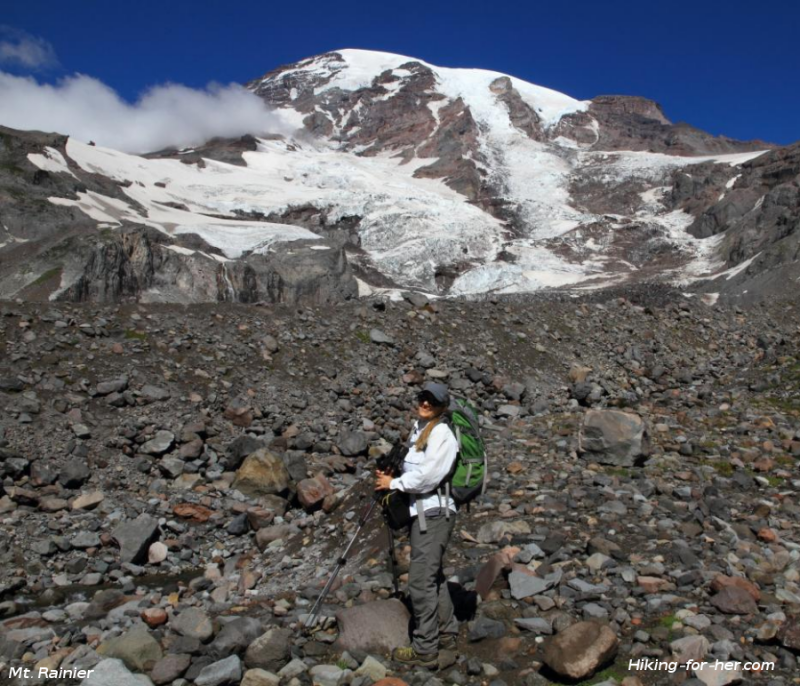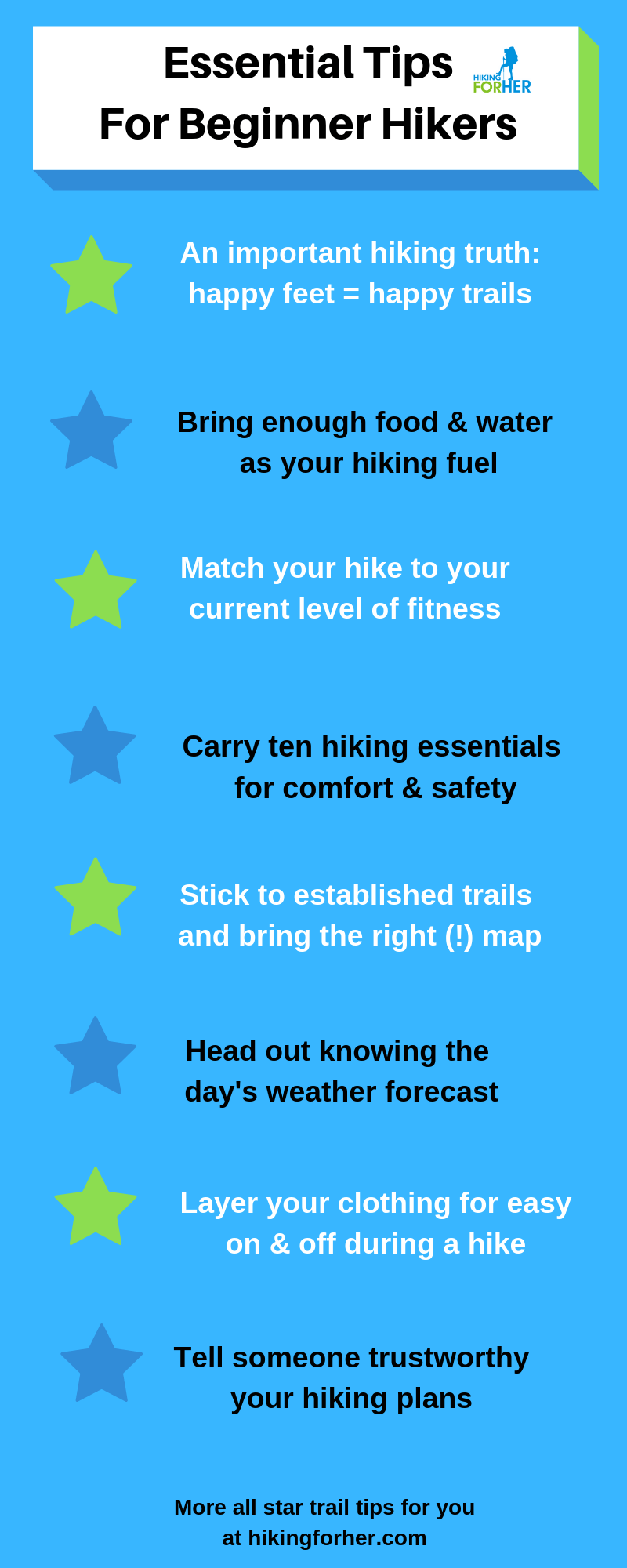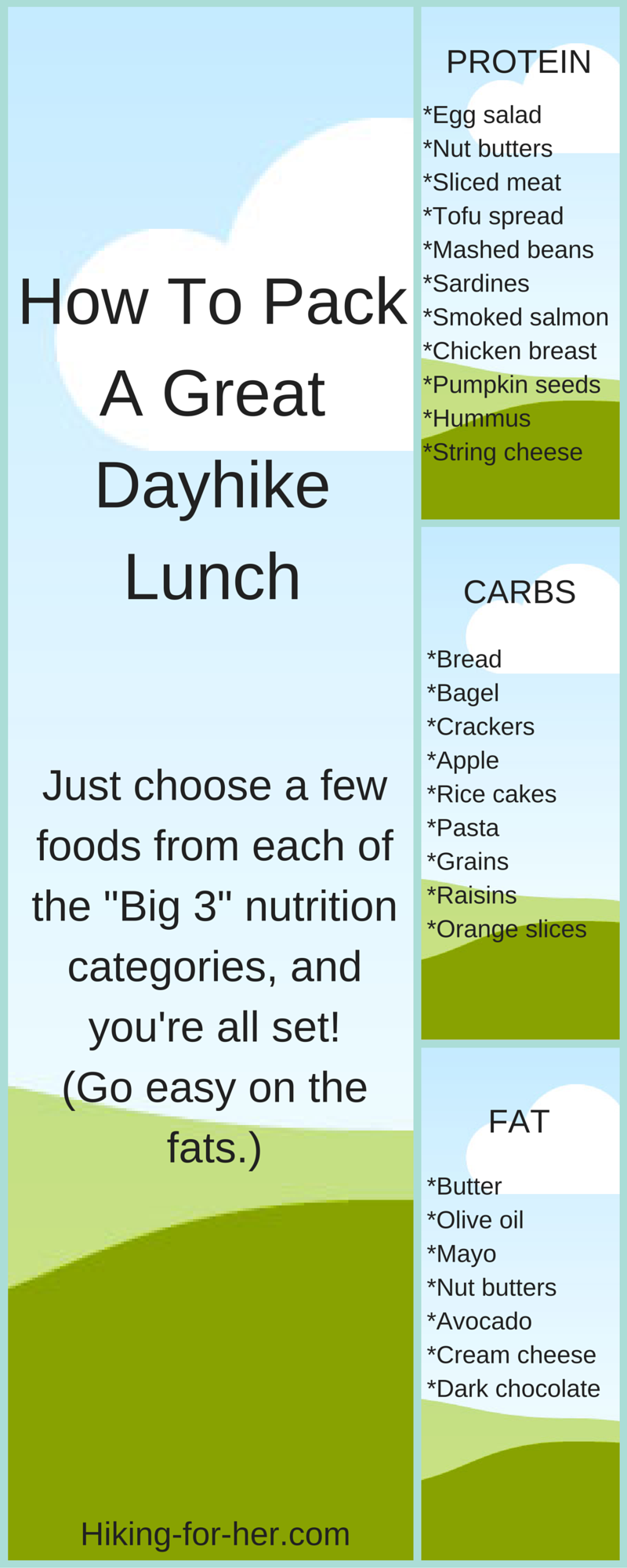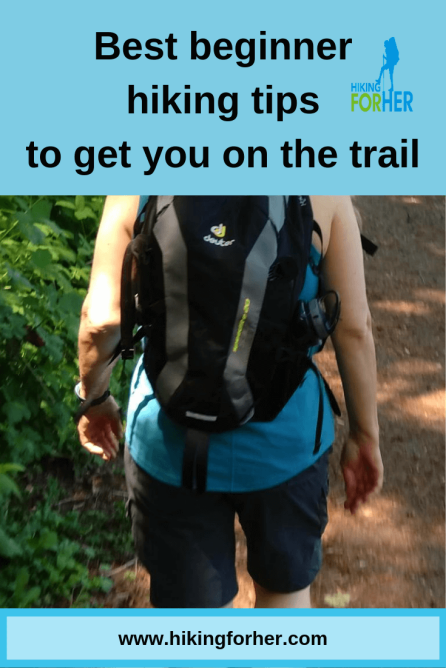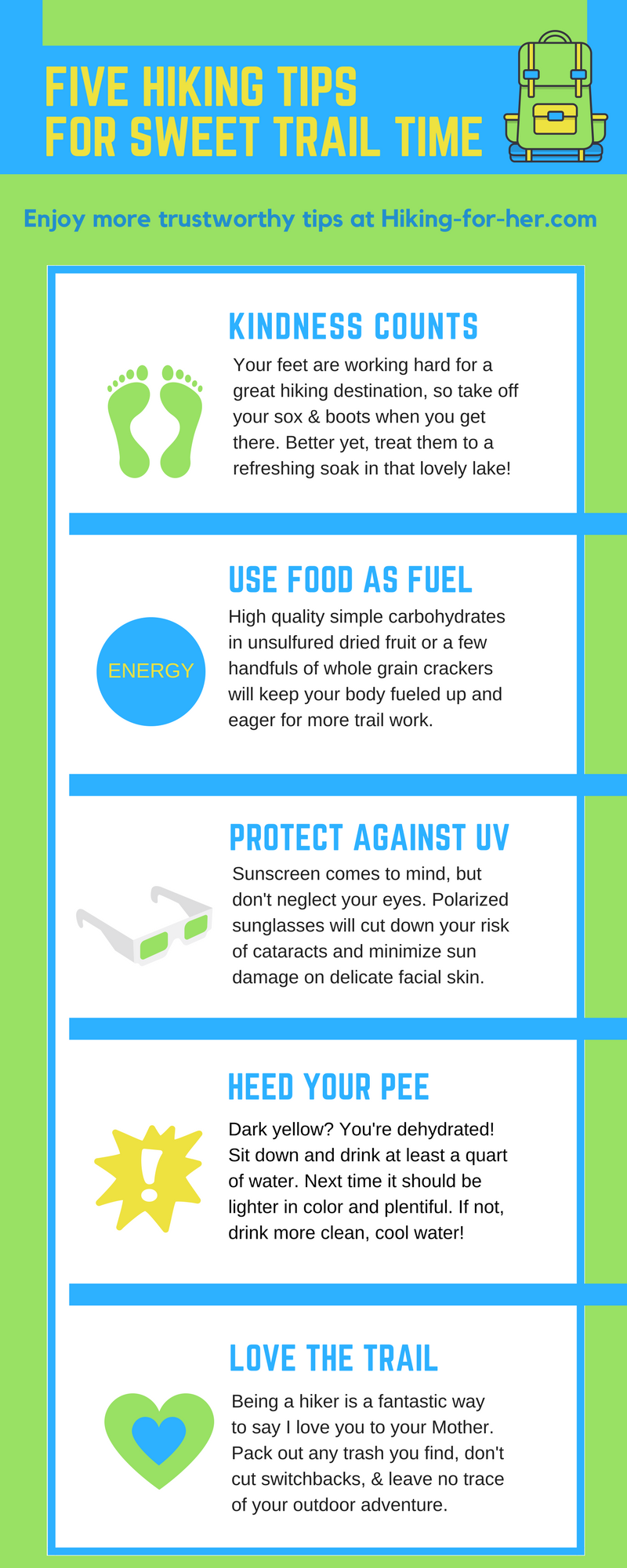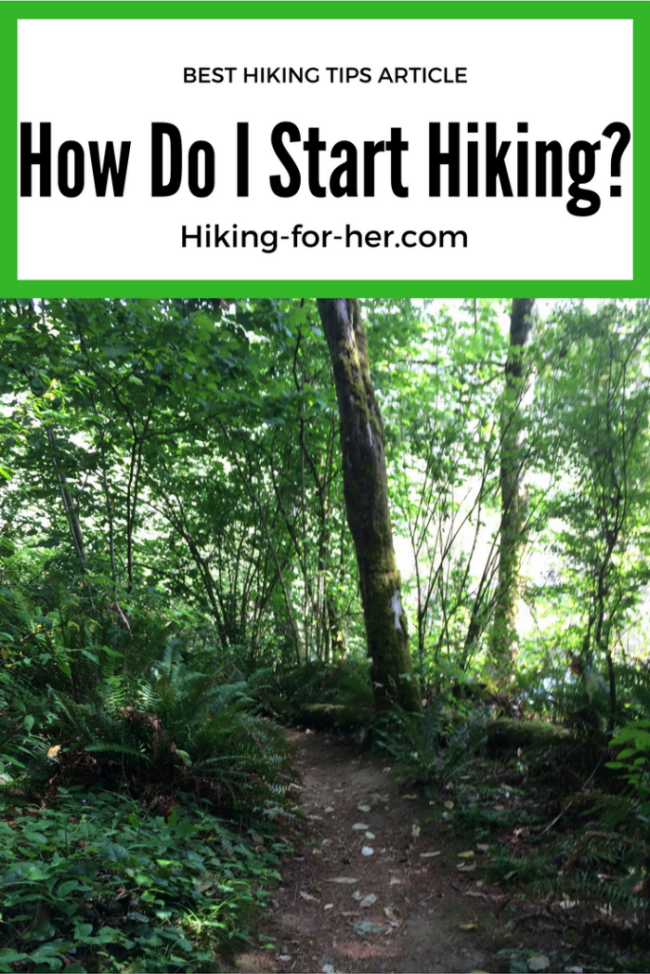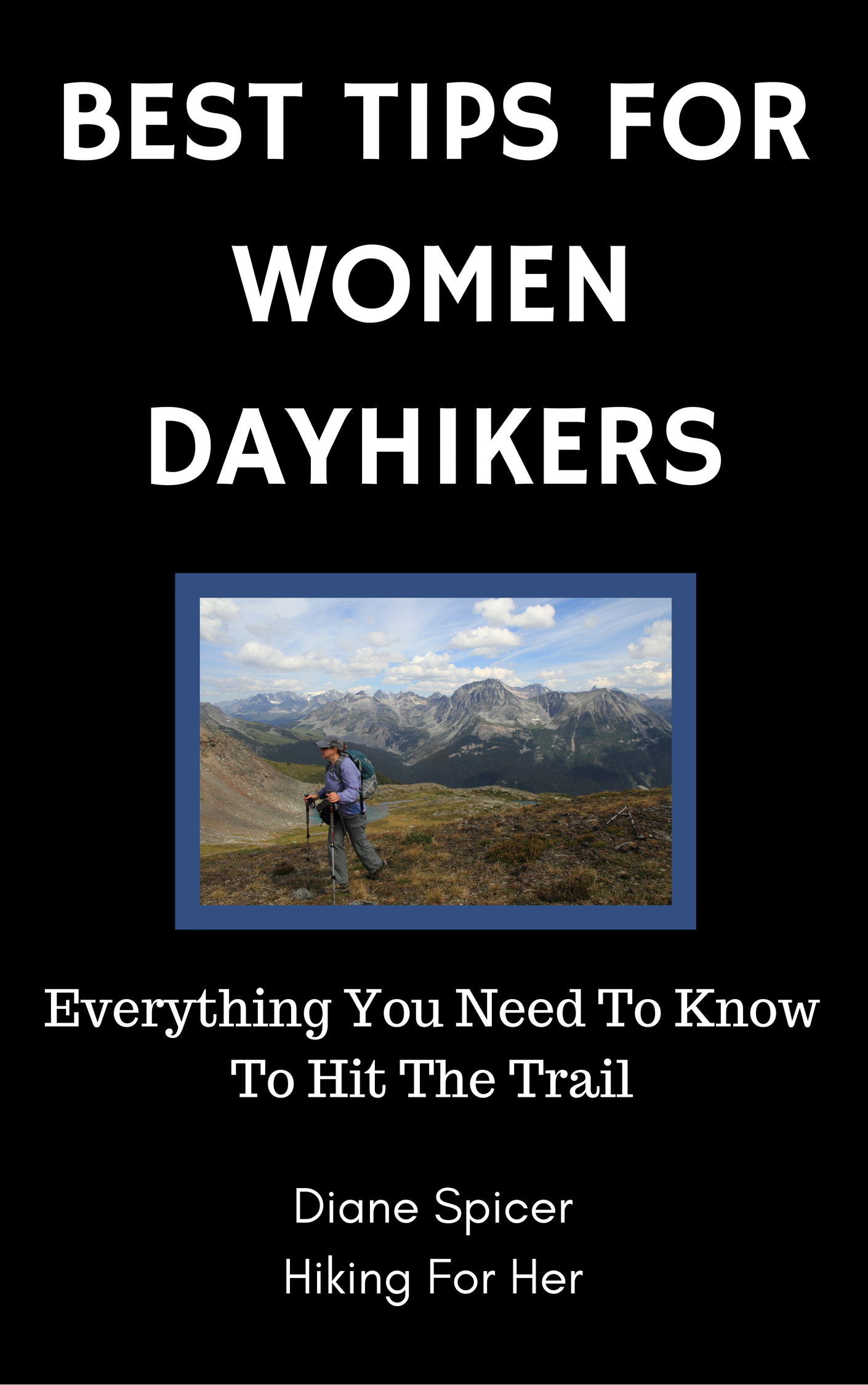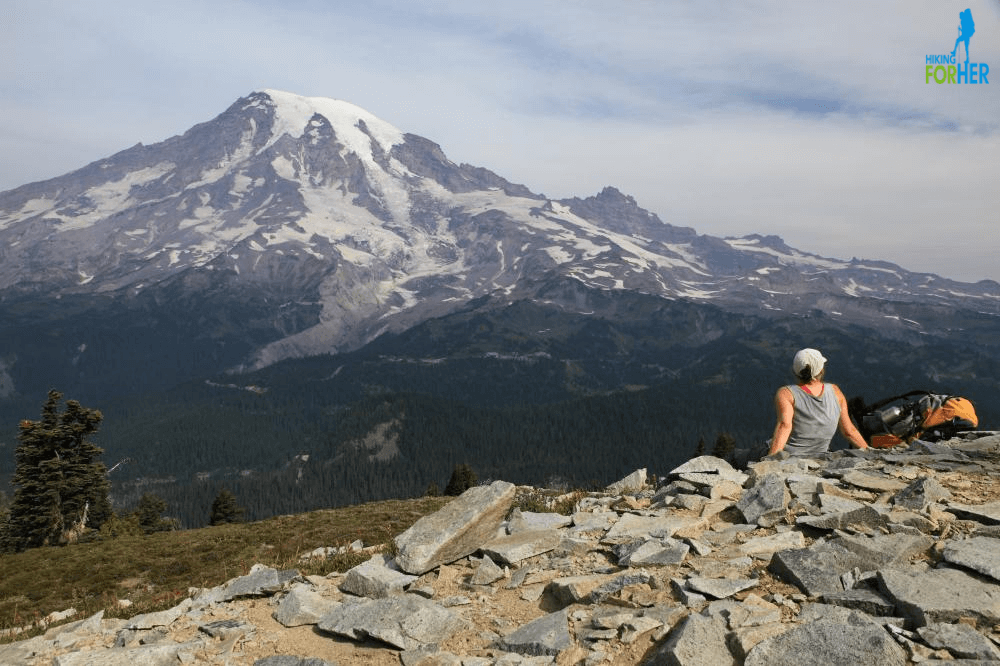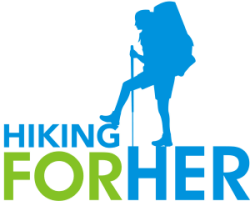
The Complete Beginner
Hiking Tips Guide You Need To Start Hiking
By Diane Spicer
Welcome to this beginner hiking tips guide! You're here to answer this question:
How does a person start hiking?
These beginner hiking tips are organized and laser focused on getting you started hiking as fast as possible, with answers and suggestions.
You're here for how to hike advice, and I'm here to deliver.
This Beginner Hiker Guide outlines exactly what you need to get started hiking, based on hundreds of reader's questions and my 45+ years of trail experience.
I won't let you down!
To show you how serious I am, I've summarized what you need to know as a beginner hiker.
Top 10 essential beginner hiking tips
1. Treat your feet right: happy feet = happy trails.
2. Bring enough food and water to fuel your hike.
3. Start where you are in terms of physical conditioning, and then build from there with each hike.
4. Carry ten lightweight hiking essentials for safety & comfort.
5. Use established, well marked trails and carry a map every time.
6. Know the forecasted weather and plan accordingly.
7. Wear clothing in layers so you can adjust to fluctuating weather.
8. Leave an itinerary of your plans with someone you trust.
9. But leave no trace of your visit to the outdoors.
10. Be gentle with yourself by adjusting your pace & destination as needed.
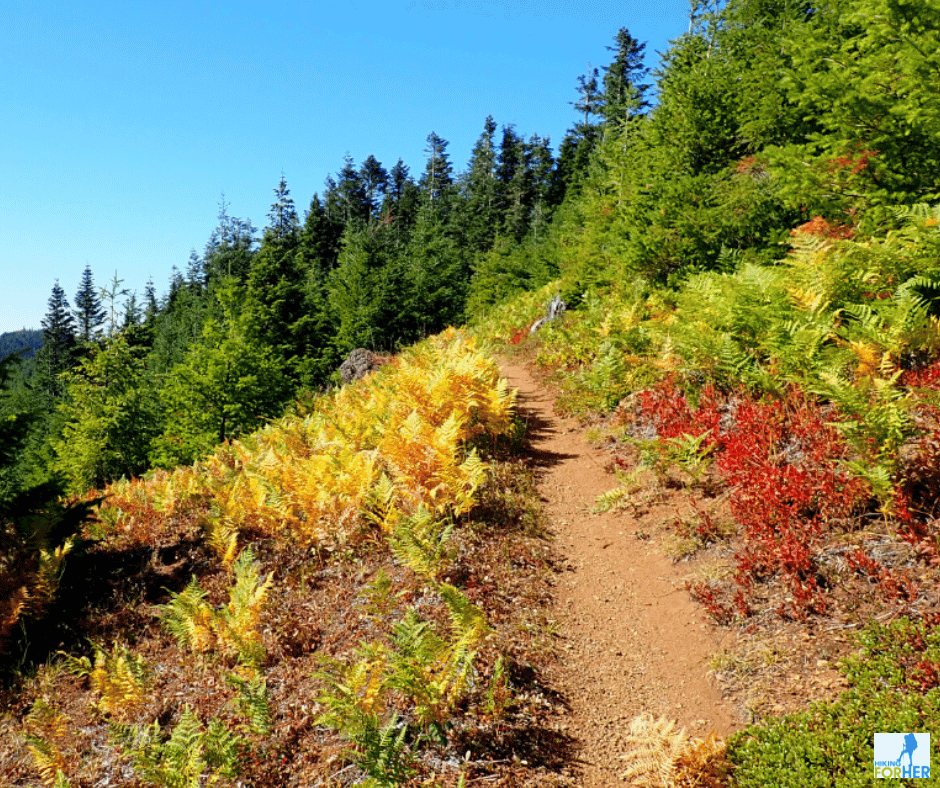
Best beginner hiker tips guide:
Overview
Now it's time to navigate to some detailed beginner hiking tips!
This guide walks you through everything you need as a beginner hiker.
(Hiking puns are used freely on this website, so avoid them like you would a deep mud puddle, or splash on through for a bit of fun.)
It covers hiking basics, starting with what to wear on a hike, the types of food and hydration a day hiker needs, and how to plan for your hygiene and safety during a hike.
It shows you how to find trails near you, and why maps are so important to hikers.
This beginner hiking tips guide also shares suggestions and resources to enhance your hiking, so you will want to keep on hiking year after year.
Some of the links go to my trusted affiliates, the companies I use myself for hiking year round. You pay nothing extra, and Hiking For Her may make a small commission. Thanks for supporting this website!
Table of Contents
- What To Wear On A Day Hike
- Hiking Boots Versus Trail Shoes
- What To Bring On A Day Hike
- What To Eat And Drink As A Day Hiker
- Day Hiker Hygiene
- Safety On A Day Hike
- How To Find Good Hiking Trails Near You
- Ways To Enhance Your Day Hikes
- Day Hiking Resources
1. What to wear on a day hike
Let's get this out of the way right now as far as beginner hiking tips go:
Don't wear cotton for anything except the driest, hottest hike.
And maybe not even then!
It doesn't have to be branded as the best athletic clothing on the planet, but it does have to do a few important jobs, without using cotton fibers.
- You need clothing that wicks your sweat away from your body and doesn't stink while doing it.
Cotton absorbs water nicely, but then takes its sweet time releasing it, leaving you clammy and potentially hypothermic in cool weather conditions.
You also need hiking clothing that moves with your body as you bend, twist, and step over rocks.
Here's the absolute minimum hiking clothing that will work for you on the trail, based on what I wear and know that it works.
I organized it in layers, which is a basic hiking concept to build a clothing system that works for you in any season.
Read more about layering here.
Base layers for mild weather
This is the layer up against your skin, so make some careful selections to guarantee your comfort.
Hiking sports bras are designed to prevent chafing and bouncing while wicking away sweat.
- Read these tips on how to find a good sports bra for hiking.
Plus size sports bras for hikers can be difficult to find.
- Read this for some hints.
Wicking underwear is also essential for your lower half.
- I wear these ExOfficio when I want durable, wicking fabric between me and my hiking pants.
- More hiking underwear tips here
But your current cotton or nylon underwear might be just fine when you're starting out in warm, dry weather.
Repeat: Warm and dry.
For anything else, experiment until you find what works best for you.
Mid layers for mild weather
You'll get overheated if you wear too many layers on a nice day.
Here are the styles of shirt that I wear for day hikes, in three versions:
- short sleeve T shirt of wicking material
- sleeveless tank top for maximum venting
- long sleeves for versatility
Hiking pants need enough room for your knees and hips to move freely.
Avoid really tight fitting clothing because it compromises your circulation and literally cuts into your muscle power.
You can get away with lightweight pants like these when you're just starting out. They are available from REI Co-op in petite and tall lengths, sizes 0 - 26W.
If you're searching for more plus size hiking pants, these tips will help.
You can also hike in great pair of shorts.
- Hiking For Her's take on hiking shorts.
Read HFH's review of a cute hiking outfit: shorts & tank top
Mild weather outer layer
You probably don't need an outer layer for a day hike, but extra clothing is one of the famed Ten Essentials.
- Bring along whatever jacket you already own on your first few hikes to evaluate the job it does for you.
- Or read about selecting the best hiking jackets here.
Beginner hiking tips for the best hats
If you don't wear hats in your daily life, it's time to consider what a good hiking hat offers you on a day hike:
- protection from ultraviolet rays
- bug defense
- moisture wicking to prevent sweat from dripping into your eyes
- shading your eyes for better navigation in bright sunlight
- a way to express your personality
Now consider all of your options in the best hiking hats!
Still not convinced you need a hat?
Then at least take a look at why carrying a bandanna is a smart move as a beginner day hiker.
2. Hiking Boots -vs- Trail Shoes
If your feet are sore, cramped, blistered, or too hot, you're not going to hike very far for very long.
Or your hiking time will be pure misery, which means you'll give up your hiking goals after just one hike.
Take that as one of the best beginner hiking tips you'll find anywhere: feet first.
Before you do anything else to join the day hiking community, get the best hiking boots or most comfortable trail shoes you can afford.
Read how to do that here.
- The guide is loaded with the best beginner hiking tips focused on your feet.
For specific tips on how to choose the best hiking boots for your particular arch and foot shape, read this Ultimate Guide to choosing trail footwear.
Whew! That's plenty to get you started on the right foot (groan).
Now let's take a close look at what I recommend for beginner hiker foot comfort in moderate price ranges.
The brands I recommend are the ones I use myself, year after year, mile (or kilometer) after mile.
Hiking footwear recommendations
It will take some trial and error before your trail footwear is error free, so here's what I recommend:
Start off on the low end of the hiking boot price range if you are going to stick to well established, mostly flat trails.
In fact, trail shoes might be your best bet.
Read my recommendations for the best beginner hiking boots and shoes.
Here's what's on my feet:
- Hiking shoes: KEEN Targhee
- Hiking shoes: Salomon low hikers
- Hiking boots: Salomon Quest Prime GTX (review)
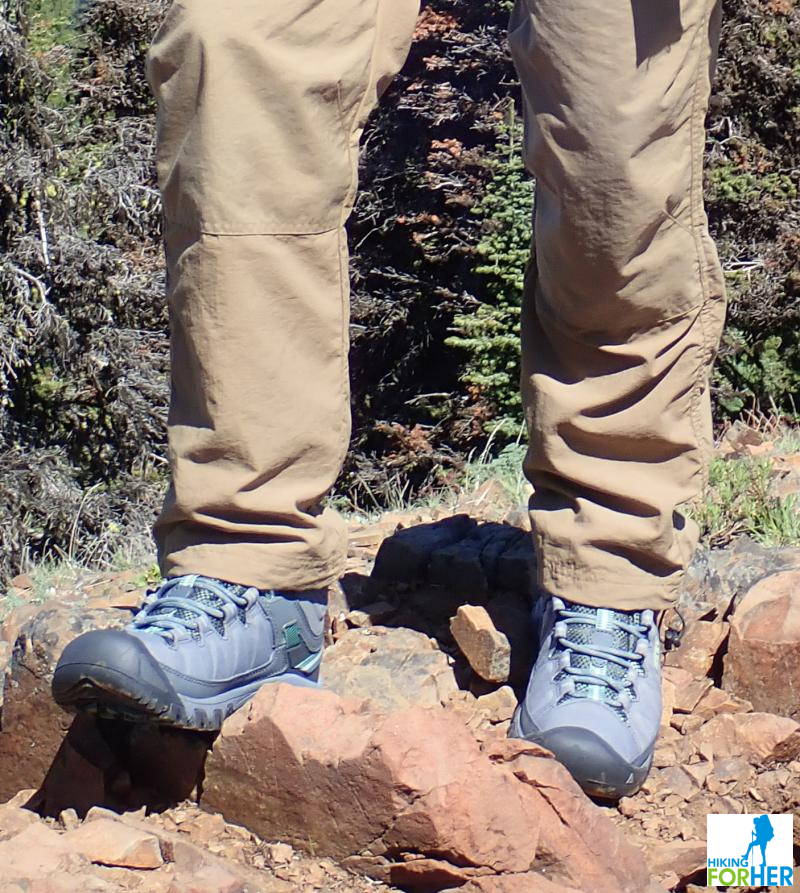
The best hiking socks make all the difference
for your comfort
Here's a basic but often overlooked beginner hiking tips winner:
- Hiking socks are really, really important.
And you should think of hiking boots/shoes and hiking socks as one high performance unit on a day hike.
Both have to perform well in order for feet to stay dry, cool and free of blisters.
- Read more about why technical hiking socks are your best hiking friends here.
I have two hiking sock companies that I turn to over and over and over again:
- Darn Tough socks, lightweight micro crew.
- SmartWool makes these socks with more cushioning.
Thin liner socks are used under these hiking socks to wick moisture away from your skin, thus preventing blisters.
- I use liners like these.
DID YOU KNOW?
You can search this website for any of these words.
Just use the search box on any page.
Use the UP arrow on the right to get there.
3. What To Bring On A Day Hike
There's no need to buy a bunch of hiking gear when you're getting started as a beginner.
In fact, there are only a few things you need to get started, and you may already own them:
- backpack
- water bottle
- the Ten Essentials
If you want to dig into details, start here:
What's the best day pack for a beginning hiker?
Let's be realistic.
On your first few hikes, you won't be carrying much weight.
You won't be going very far.
If you pick the right day, the weather will be mild.
Your chances of having to navigate off trail are low except to visit the bushes now and then.
And you don't need fancy stuff like an ice axe loop or a hydration system on your day pack - unless you want them.
So start basic with Backpacks 101.
But be reassured that guide is not TOO basic.
- You want to buy a pack that will serve you well on the trail a year from now, not just tomorrow.
I have two brands which I absolutely recommend for a beginning hiker.
Here are a few words about why each brand is so trustworthy.
Deuter daypacks are incredibly sturdy and engineered for comfort.
This backpack is low volume (22 liters), just large enough to carry your essentials.
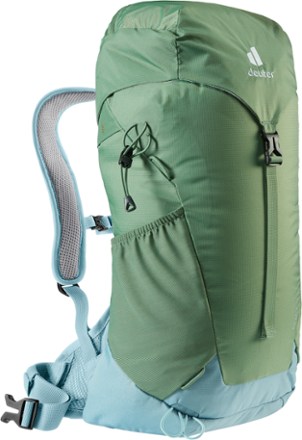 Deuter AC Lite 22 SL Pack - Women's | REI Co-op Deuter AC Lite 22 SL Pack - Women's | REI Co-op
|
|
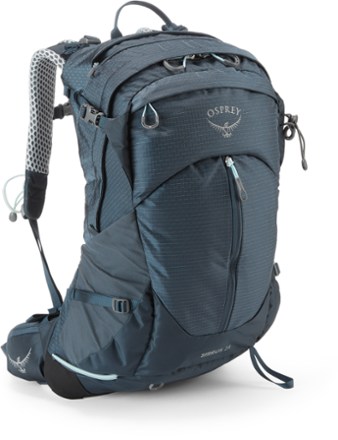 Osprey Sirrus 24 Pack - Women's | REI Co-op Osprey Sirrus 24 Pack - Women's | REI Co-op
|
|
Beginner Hiking Tip: If you're on a budget, share this Best Hiking Gift Guide with your loved ones when they ask you what you need to get started.
Best water bottles for day hikes
You can re-use a thin plastic bottle for your hiking water on your first few hikes.
In fact, you can do that for your entire hiking career.
But sooner or later, you might want to use a tough, well designed metal or plastic water bottle with a tightly sealed lid.
You can explore your options for hiking water bottles with a guide I created for you here.
And read some of my gear reviews:
Fill up your pack with the famous hiking Ten Essentials
Once out on the trail, you're responsible for your own safety and comfort.
Your pack will carry your food and water, but it should also be loaded up with these ten essentials.
Essentially (!!) they keep you safe & buy some time if something should delay your return to the trail head.
And they help you Leave No Trace, another important hiking principle.
Bonus:
Hiking For Her offers you the detailed beginner hiking tips you need in each of these 10 categories.
Just use the search box to find them.
This handy hiking infographic will remind yourself of the essentials of starting off your hiking career as prepared as possible.
4. What To Eat And Drink As A Day Hiker
You want to carry food and hydration that works with you, not against you, on a day hike.
You might be shocked at how hungry you get during a hike.
And the huge appetite might linger into the next day.
- That's what it feels like to be an endurance athlete a.k.a. a hiker :)
So here's a solid beginner hiking tips addition for your collection: begin to think of food and water as fuel.
Beginner hiking tips:
best day hike foods
Bring high quality nutrition along on every hike, and train your body to hike on lots of carbohydrates and water.
- Calories from carbohydrates give you quick energy.
If the whole idea of hiking nutrition bores you, please take a few moments to at least consider the fact that you need to eat a bit differently as a hiker:
- Bring a lunch with easy to digest carbohydrates, with a bit of protein and fat
- No sugary highs that will crash you into fatigue, so avoid candy bars and sweet drinks.
Here are some ideas for suitable hiking snacks that will give you energy, stamina and no digestive upsets. Bring plenty!
If you're really into the idea of trail nutrition, start here.
Best beginner hiking tips recommendation: Take precautions to keep your day hike food safe on a hot day with these tips.
Tips for staying hydrated on a day hike
Thirst levels might also surprise you on a day hike, even in mild weather.
Your body needs a constant supply of water in order to perform muscle contractions.
And it's not shy about asking for it.
Pay attention to those signals. And drink every hour or so even when you don't feel thirsty.
- Staying hydrated allows the calories you eat to be delivered quickly to your muscle cells (among others).
- Hiking water ideas are explored here.
5. Day Hiking Hygiene
Because you start and end your hike with access to a bathroom, soap and water, there's no need to get very concerned about staying clean on a day hike.
But you will have to face having to pee and poop during the hike.
And if you're having your period, that's an additional hygiene issue to handle.
Use these tips to be sure you're prepared:
6. Safety On A Day Hike
If you stick to the trail and pay attention to the amount of daylight you have for your hike, you won't have to worry about getting lost or spending the night outdoors.
However, there are still safety concerns to think about as a day hiker.
This comprehensive Hiking Safety Guide covers everything you need to know before you get on the trail.
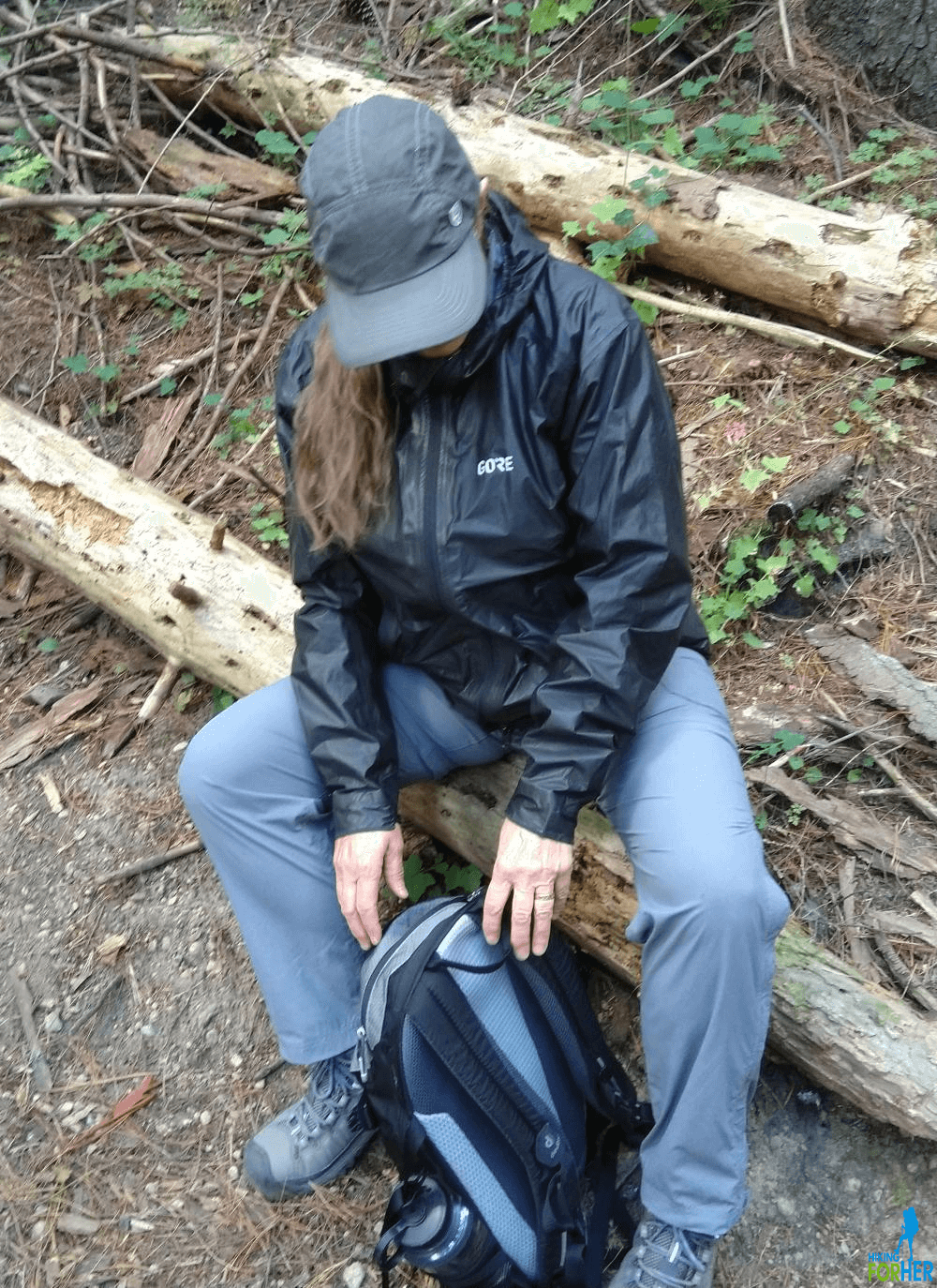
7. How To Find Good Day Hiking Trails Near You
As a day hiker, you want a great destination, with a plan to get there and back.
In other words, some resources for nearby trails and a map to navigate them.
Beginner hiking tips for finding trails
Use the resources in your community to locate suitable, well marked trails of the length you want to try. Start with available resources in the visitor center.
- Many places offer paper as well as on line maps of hiking trails.
Look at your:
- Community parks
- Wildlife areas
- County parks
- State parks
- Nearby national parks
- Established long trails with access points near you, such as the Appalachian Trail or the Pacific Crest Trail
This National Forest System Trails resource can also be useful for beginner hikers.
If you own a smart phone, you can load a hiking map app onto it. A good one to try is AllTrails, with 75,000+ trails. There is a free version, and a "pro" account for a monthly fee.
You can filter by:
- location
- length of hike
- difficulty of hike
You can also create custom maps, community geotagged photos, and trail reports with this app, so it will grow along with your hiking bucket list.
Get started using maps with these beginner hiking tips
A good hiking map (app or paper) shows you distance and elevation gain/loss so you can calculate how long it might take you to finish a hike.
A map also shows you trail heads, parking areas, bail out points if something goes wrong, surface water sources, water crossings, and potential viewpoints on ridges or hilltops.
To get started with hiking maps for all these reasons, use these resources:
8. Ways To Enhance Your Hikes
You can quickly find some of the best beginner tips for day hiking success right here.
But here's an even quicker summary:
How to get your head in the hiking game!
The mental game plan you should bring on every hike includes:
- motivation
- common sense
- good attitude
- first aid and navigation knowledge
- enough self awareness to know your own blind spots (also called "know when to lead, when to follow")
No hiking gear store in the world sells these :(
That's why this guide focuses on the basic beginner hiking tips you'll need to start down the trail of your choice.
You'll have to build your own mental game plan, and record it in your trail journal after every hike (a great habit to develop as your skills grow with each day hike).
Use these links to get started on building a better day hiking plan:
- Why hike?
- Pacing
- How to handle trail stresses
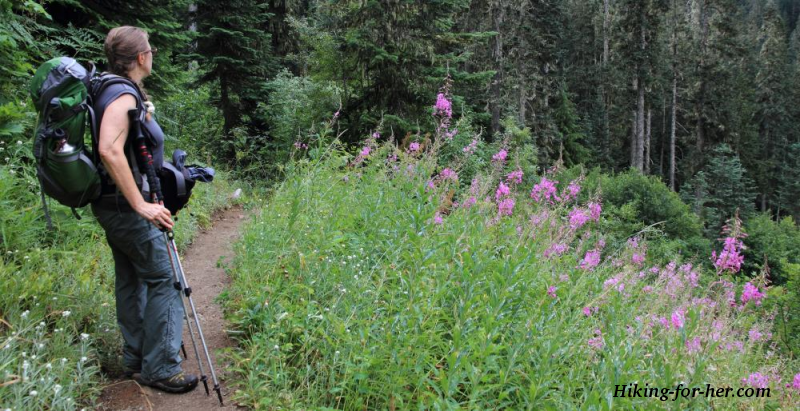 Take time to smell the flowers on your first few day hikes
Take time to smell the flowers on your first few day hikes
9. Day Hiking Resources
To round out this Beginner Hiking Tips Guide, here are some insider tips to make getting out on the trail much easier.
Day hiking checklist
to organize these beginner hiking tips
Although this guide stuck to the basics with beginner hiking tips, you might like to see a complete check list with explanations for why you need each item.
You won't need all of these supplies on your first few hikes, but it's good to keep an eye open for great gear deals and clothing sales.
Before you shop for hiking gear and clothing
The first and most important tip to succeed as a new hiker shopping for gear?
- Always use reliable hiking gear sources as you begin to fill up your gear locker and hiking clothes closet.
It's a good idea to take a close look at what an experienced hiker considers basic hiking gear before you go shopping for beginner trailwear and gear.
That's why I wrote this Beginner Hiking Tips Guide!
To avoid information overwhelm but to get a closer look at everything I recommend, use this beginner gear guide I put together just for you.
It uses REI Co-op as the source for recommended high quality, durable and trustworthy hiking gear and outdoor clothing.
- Lots of photos and details
- Detailed customer reviews
- Great customer policies
Not an REI Co-op member yet?
You're missing out!
A one time membership fee of $30 US rewards you, again and again.
Go with a group to learn basic hiking skills
Need some encouragement as you're starting out as a day hiker?
Don't go it alone!
Group hiking trips run the gamut from an overnight to a beautiful destination, to a week or more backpacking through the backcountry.
You can leave all the logistics and planning to experienced guides, and concentrate on your gear.
- Read these tips on when, and why, a group hiking trip might be useful to you.
- Perk up your ears during your trip to learn the beginner hiking tips folks will share in a group setting, advice on gear and clothing and hiking food in particular.
Take a hiking class to build skills
Being a beginner hiker is hard.
You don't want to make mistakes, or look silly.
So why not take a class with other beginners?
REI Co-op makes it low cost and easy to build skills. And once you build skills, your trail confidence soars. Great deal, right?
Here's how to pick exactly the right hiking or camping class from REI.
Find fast answers to your beginner hiking questions!
And don't forget, you can email me directly.
You know, just in case I didn't answer that one burning question you still have ;)
And please don't be shy.
- Send your hiking question and expect a personal answer!
As you search for beginner hiking tips on this website, you can dip into the Hiking Question archive here.
- Maybe your question has already been answered.
Or use the search box at the top of every page to find detailed articles on the topics that interest you the most.
- The blue TOP button over on the right side will get you back up there quickly.
Or this HFH Best Hiking Tips For Dayhikers book might be the best place to start. Many hikers have used it to solve dayhiking problems.
Need some free hiking stuff to get started as a day hiker?
I thought you might!
You can enter for a chance to win all sorts of hiking and camping gear, athletic clothing, books, and fun outdoor products on this Hiking For Her current giveaways page.
- Bookmark it, and check back every month so you never miss a chance to be a winner on the trail of life.
By the way:
You're already a winner!!
This is just a chance to fill up your gear closet :)
Best Beginner Hiking Tips Guide all wrapped up
Now you know how to get started with the basic hiking gear and athletic clothing that you need for day hiking.
You also have a heads up that eating and drinking for the hiking trail is a bit different than your usual daily routine.
Hygiene, safety, maps ... wow, you've learned a lot!
Use this link to the Hiking For Her site map to take a deeper dive into the reasons why I make these recommendations as solid beginner hiking tips.
- Explore, enjoy and educate. It's the Hiking For Her way ;)
Home page > Best Hiking Tips >
Best Beginner Hiking Tips Guide
Just so you know, some of the links on this page and elsewhere on the website are affiliate links, which is the way all of this hiking information can stay available to you free of charge.
If you purchase hiking gear through one of the links, you pay nothing extra but Hiking For Her is rewarded with a very small percentage of your purchase price. It keeps this website humming along.
I only recommend, and link to, the stuff I know, trust and use myself. You can see it being used in the photos on this site.
These beginner hiking tips are only the tip of the iceberg, so please look around and use all of the resources that are provided for you.
- Thanks for your support of this website, it is deeply appreciated.
|
I get emails all the time about what I wear, eat, carry and love to use on the trail. That's
why I provide affiliate links to you: the best gear that I use myself and have seen used by other hikers is instantly
available for your consideration, and the gear company sends a few
pennies per dollar to this reader-supported hiking website. There is no added cost to you! Everyone ends up a winner: Great gear for you, strong gear companies, and more free hiking tips for everyone. Thanks very much for your support. It's warmly and sincerely appreciated. It also helps send these hiking tips to all your virtual trail buddies around the globe. |
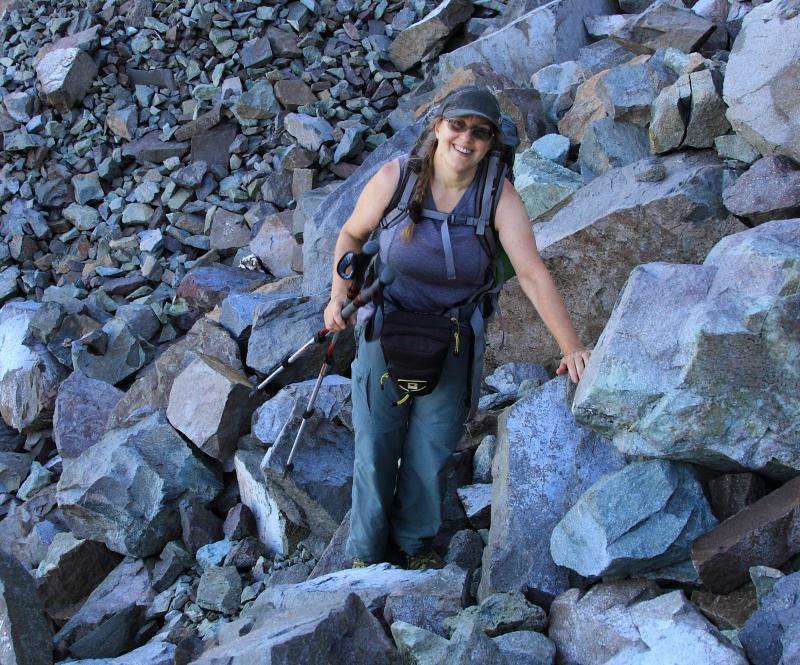 |
